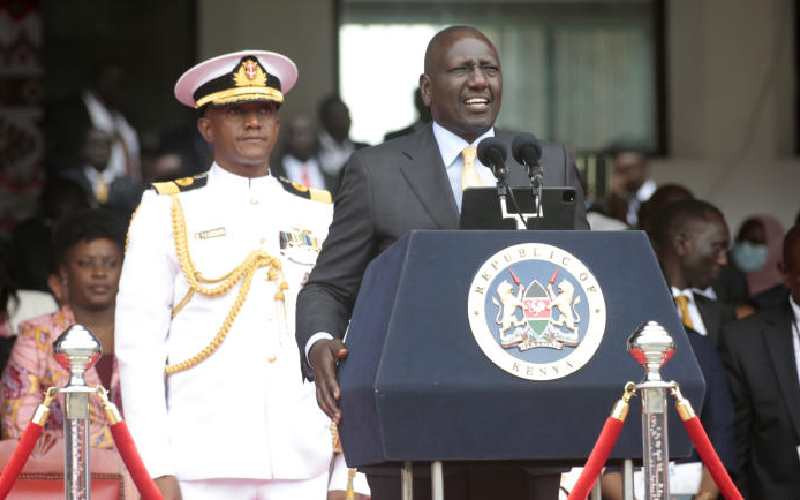×
The Standard e-Paper
Join Thousands Daily

President William Ruto during his swearing-in ceremony at Kasarani on September 13th, 2022. [Boniface Okendo, Standard]
Looking at the Kenya Kwanza manifesto, it is apparent that the now ruling coalition favours a market economy. They have not disappointed!